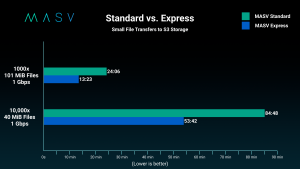Hicksville, New York / Syndication Cloud / July 18, 2025 / Sam Ash

Key Takeaways
- Finding the right electric guitar online requires different approaches depending on your skill level, with beginners needing more guidance than professionals.
- Specialized music retailers like Sam Ash offer expert guidance and quality assurance that general marketplaces simply can’t match.
- Reputable beginner-friendly brands include Squier, Yamaha, Ibanez, and Epiphone, which provide reliable quality at various price points.
- Identifying red flags in listings helps you avoid purchasing problematic instruments.
- Post-purchase support like setup services and return policies will significantly impact your long-term satisfaction with an online guitar purchase.
Why Online Guitar Shopping Is Different for Beginners vs. Professionals
The vast world of online guitar shopping can be either exciting or overwhelming, depending on your experience level. For beginners, this process requires more guidance and safeguards against common pitfalls that experienced players easily avoid.
New players need clear information about what makes a good starter instrument and assurance they’re not overpaying for features they don’t yet need. For example, online retailer Sam Ash offers specifically curated selections that help beginners find instruments matching their budget and musical aspirations without the technical overwhelm that often comes with guitar shopping.
Professionals approach online guitar shopping with different priorities. They typically know exactly what specifications they need – from tonewood preferences to pickup configurations and neck profiles. Their online experience focuses more on finding rare models, specialty instruments, or the best possible deal on gear they’ve already researched extensively.
The skill gap also affects how much post-purchase support you’ll require. Beginners often need setup assistance or guidance on accessory selection, while experienced players can handle these aspects themselves. This fundamental distinction shapes which online retailers will best serve your needs at different stages of your musical journey.
Identifying Quality Electric Guitars Online
How to spot reputable brands (Squier, Yamaha, Ibanez, Epiphone)
The first defense against disappointing purchases is sticking with established brands. Manufacturers like Squier, Yamaha, Ibanez, and Epiphone have built reputations by consistently delivering reliable instruments across various price points. These companies maintain quality standards even in their budget lines because they have brand legacies to protect.
When browsing online listings, always verify the exact model names and check for authenticity indicators. Counterfeit guitars have become increasingly sophisticated in recent years, which is why purchasing from authorized dealers is crucial. Established music retailers typically only carry genuine instruments from recognized brands, eliminating this concern entirely.
Price-to-quality ratio indicators
Price alone doesn’t determine quality, but there are some helpful benchmarks to guide your search. For electric guitars, the pricing typically breaks down as follows:
- Under $200: Basic beginner instruments with simpler components
- $300-500: Significant quality improvements in playability and sound
- $500-1000: Introduction of professional features and better components
- $1000+: Professional-grade instruments with premium materials
When evaluating online listings, compare similar models across different retailers to establish fair market value. Quality indicators to look for in product descriptions include solid wood construction (versus laminate), name-brand electronics, smooth fret ends, and precise information about materials used. Detailed product photos showing these elements help confirm quality when you can’t physically inspect the instrument.
Red flags to avoid when browsing listings
Protect yourself from disappointment by watching for these warning signs:
- Vague descriptions lacking specific model information
- Limited or poor-quality product images
- Missing details about materials or electronics
- Prices dramatically lower than identical models elsewhere
- Negative reviews mentioning inconsistent quality
- Retailers who can’t answer basic questions about the instrument
These red flags are especially important for beginners to recognize, as you might not yet know exactly which technical aspects to evaluate when making your purchase.
Specialized Online Music Retailers vs. General Marketplaces
Benefits of dedicated guitar stores
Dedicated music retailers bring several advantages to the online guitar shopping experience that general marketplaces simply can’t match. These specialized stores typically offer thorough quality control with proper instrument inspection before shipping, staff with genuine musical knowledge, and detailed product descriptions written by actual musicians.
Most importantly, they understand that guitars aren’t just products – they’re tools for creative expression that require proper handling and expertise. This translates to better pre-sale support for making informed decisions and post-sale assistance if you encounter any issues with your new instrument.
When Amazon/eBay might be appropriate
General marketplaces like Amazon, Walmart, and eBay can sometimes be suitable options in specific situations:
- When purchasing standardized accessories like strings and cables
- If you’re an experienced player who knows exactly what to look for
- When buying from an established music store that also sells through these platforms
- For finding discontinued or specialty models no longer available elsewhere
- When extreme budget constraints are your primary concern
These platforms often offer competitive pricing and convenient shipping, but the trade-off comes in reduced quality assurance and expert guidance – factors that matter significantly for beginners.
Expert guidance in virtual environments
One misconception about online shopping is that you lose all personal guidance. Today’s specialized music retailers have developed various ways to provide expert assistance virtually through live chat with experienced guitarists, detailed buying guides organized by skill level, and video demonstrations of instruments.
Many also offer virtual consultations where staff can recommend instruments based on your specific needs and playing style. These resources help bridge the knowledge gap, especially for beginners who benefit most from personalized advice when first buying electric guitars.
Essential Pre-Purchase Considerations
1. Matching guitars to playing style and music genre
Different guitar designs excel at different styles of music. While any guitar can technically play any genre, certain features make specific models more suitable for particular styles:
- Rock and Metal: Guitars with humbucker pickups provide thicker, distortion-friendly tones. Look for models with double-cutaway designs for easier access to higher frets.
- Blues and Classic Rock: Single-coil pickups deliver the bright, articulate tones associated with these genres. Stratocaster and Telecaster-style guitars are perennial favorites.
- Jazz: Semi-hollow or hollow-body guitars offer the warm, resonant tones jazz players prefer. Models with humbucker pickups in the neck position are particularly sought after.
- Country: Telecaster-style guitars with single-coil pickups provide the twang and clarity country music demands.
Consider your musical heroes and research what guitars they play. While you don’t need to copy them exactly, this provides valuable guidance toward instruments suitable for the sounds you want to create.
2. Understanding specs that matter for your skill level
As a beginner, focus on playability over advanced features. Key specifications to prioritize include neck profile (thinner, “C”-shaped necks are generally easier for beginners), scale length (standard scales from 24.75″ to 25.5″ work well for most players), and string gauge (lighter strings require less finger strength).
Intermediate and advanced players should pay attention to more nuanced specifications:
- Pickup configurations and switching options
- Tonewood combinations and their tonal impacts
- Fret size and material (jumbo vs. medium, nickel vs. stainless steel)
- Bridge and tremolo systems (fixed bridge vs. various tremolo designs)
- Tuning stability features like locking tuners
A good online specialist should provide these detailed specifications in their listings, allowing you to make informed decisions even without handling the instrument first.
3. Budget allocation (guitar vs. accessories)
A common mistake for beginners is spending their entire budget on just the guitar, forgetting essential accessories. A balanced approach to your budget should look something like:
- Guitar: 60-70% of your total budget
- Amplifier: 20-25% (even a small practice amp is essential)
- Accessories: 10-15% for cables, picks, strap, tuner, and case/gig bag
For beginners with a $500 total budget, this might mean spending $300-350 on the guitar, $100-125 on an amp, and $50-75 on accessories. Many online retailers offer bundles that include these essentials, often at better value than purchasing separately.
If your budget is limited, prioritize a decent-quality guitar over an expensive amplifier – you can always upgrade the amp later as your skills develop.
After-Purchase Support That Makes the Difference
Setup services and their importance
Even brand-new guitars typically benefit from professional setup. This process includes adjusting string height (action), setting intonation for proper tuning across the fretboard, checking and adjusting neck relief, and ensuring electronics function correctly.
Many specialized online retailers offer setup services before shipping your guitar. This service is particularly valuable for beginners who may not recognize setup issues or know how to address them. A properly setup guitar plays more easily, stays in tune better, and generally provides a more enjoyable experience – making this small investment worth it.
Return policies worth investigating
Before purchasing, always understand the retailer’s return policy. Important aspects to check include the return window (how many days you have to evaluate the instrument), condition requirements (what state the guitar must be in for returns), any restocking fees, and who covers return shipping costs.
The most guitarist-friendly policies offer 30+ day evaluation periods, reasonable condition expectations (understanding you’ll need to play the instrument to evaluate it), minimal or no restocking fees, and clear instructions for returns if needed.
Quality online retailers stand behind their products and want satisfied customers, not just completed transactions. This commitment to customer satisfaction becomes particularly important when purchasing something as personal as a musical instrument.
Finding Your Perfect Match: Beyond the Purchase
Finding your ideal electric guitar online is just the beginning of your musical journey. The right retailer becomes a valuable resource throughout your development as a guitarist.
The best online guitar stores provide ongoing resources like tutorial videos, maintenance guides, and community forums where you can connect with fellow players. They’ll also keep you informed about new gear that might complement your playing style as your skills advance.
Whether you’re a beginner purchasing your first instrument or a seasoned professional adding to your collection, choosing a retailer that understands the guitar journey makes all the difference. With specialized knowledge spanning from beginner needs to professional requirements, Sam Ash helps guitarists at every level find their perfect match.
Sam Ash
278 Duffy Ave
Unit B
Hicksville
New York
11801
United States










